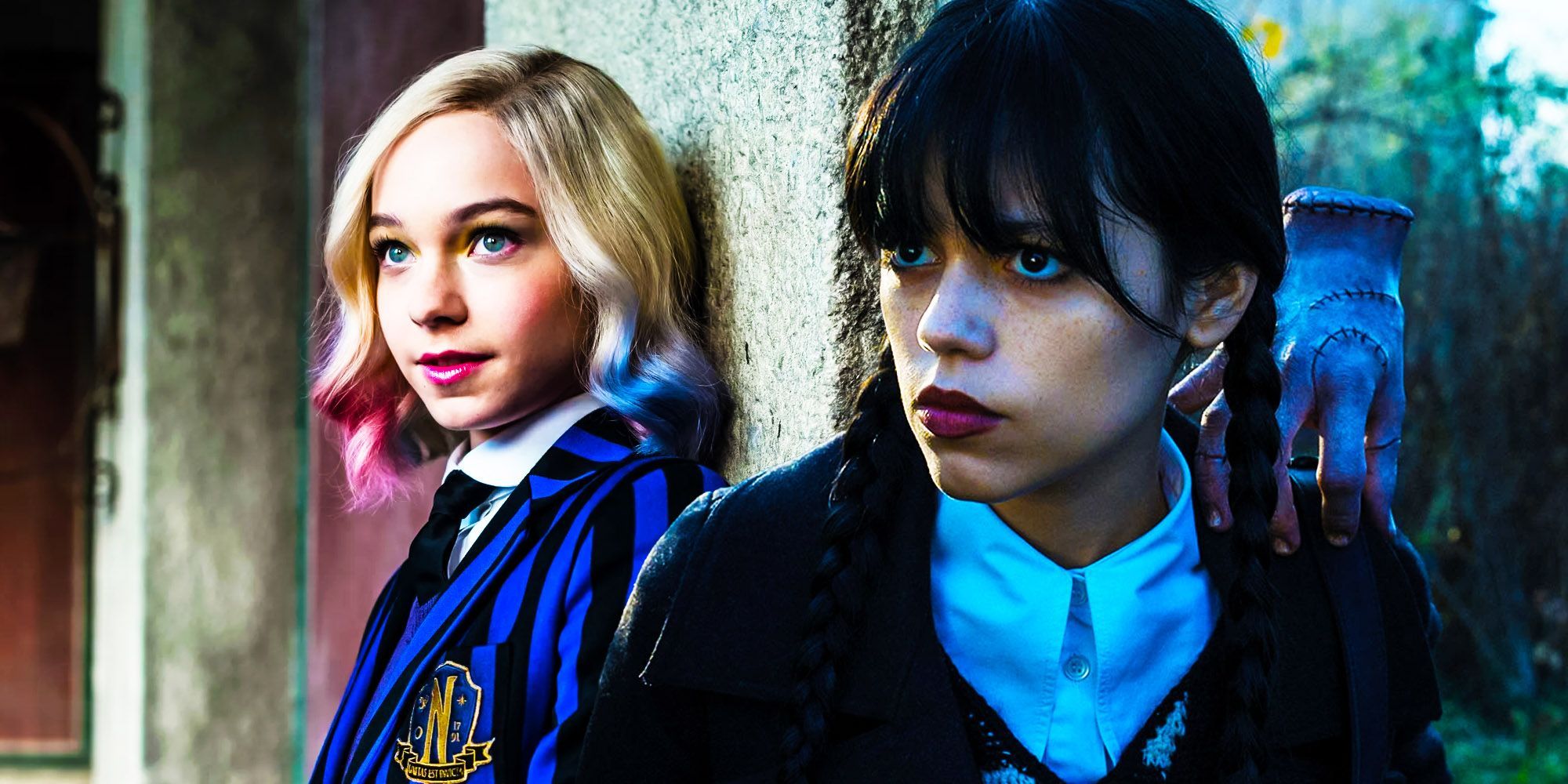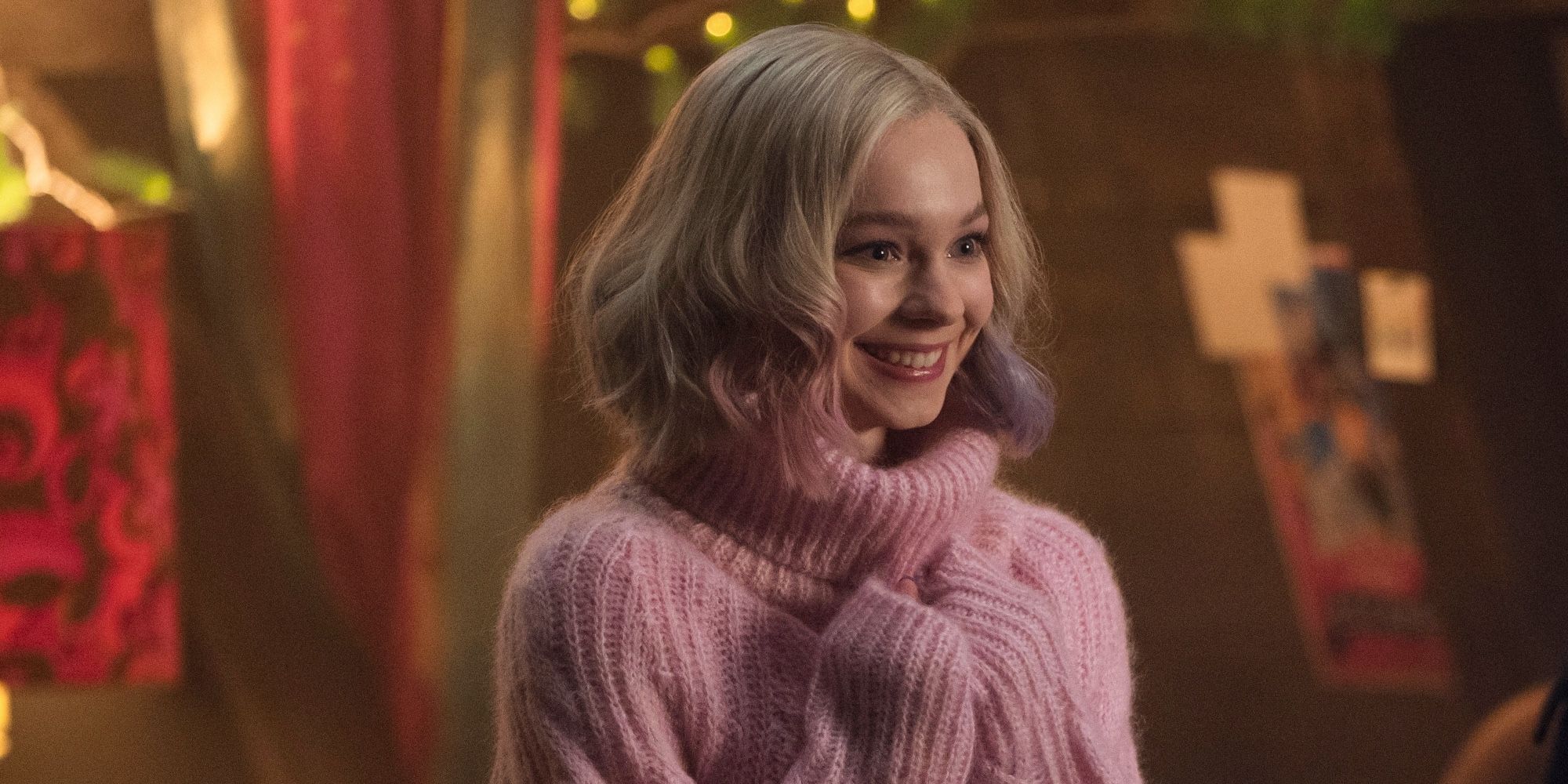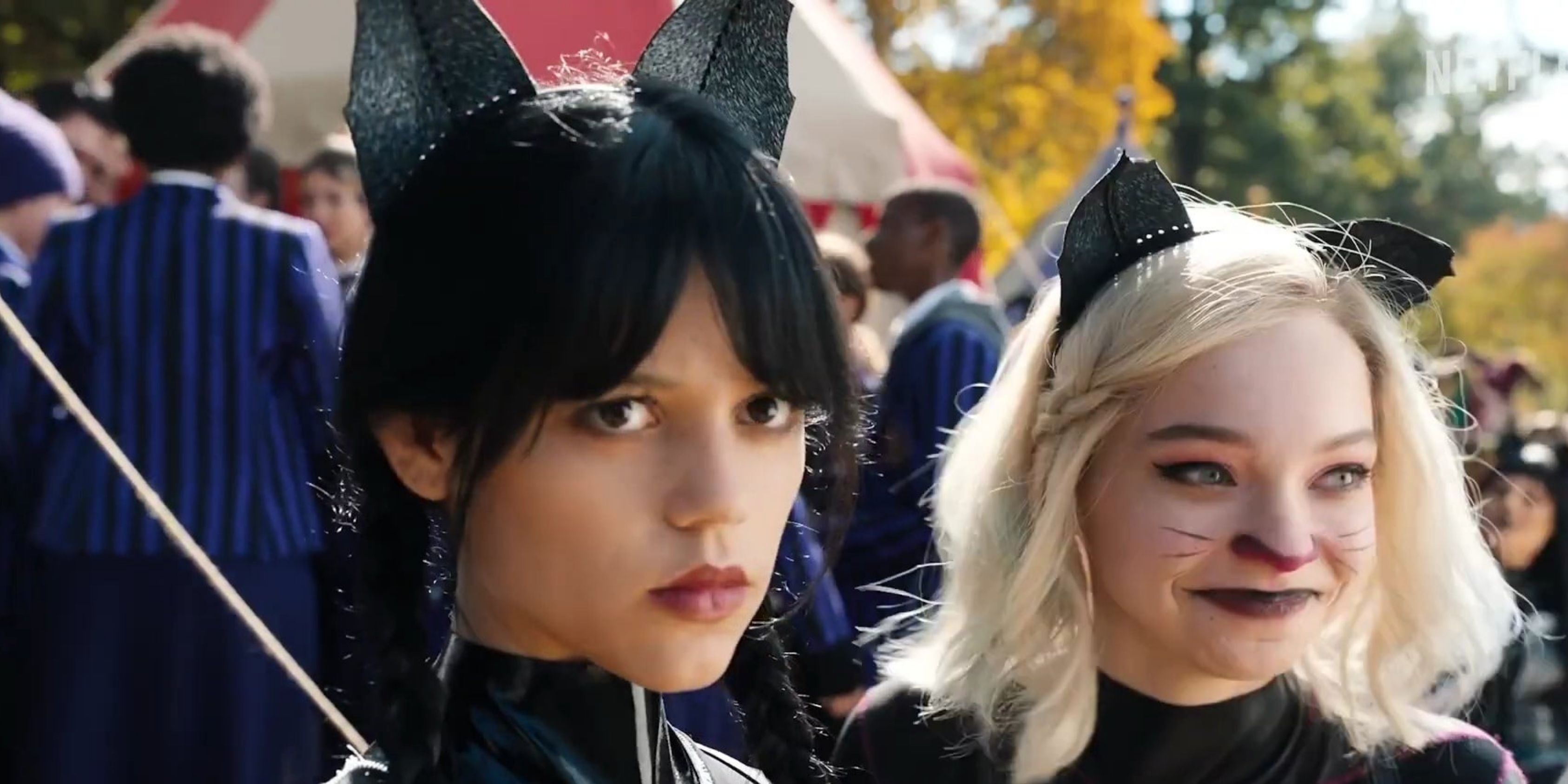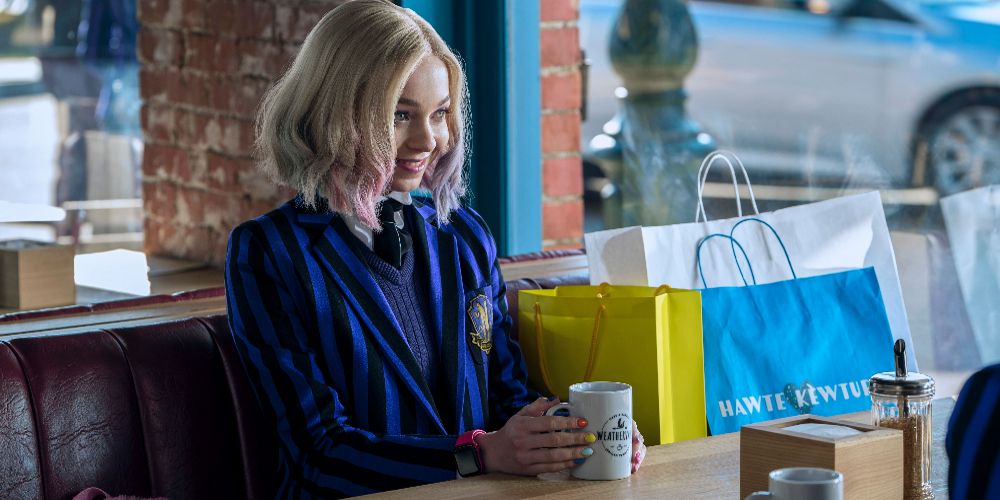Netflix's Wednesday premiered last week to positive reviews, but the series is already plagued by allegations of queerbaiting audiences with the relationship between Wednesday (Jenna Ortega) and her roommate-cum-best friend, Enid (Emma Myers). In an era of unprecedented LGBTQ+ representation in media, the troubling practice of queerbaiting, whereby a show teases an LGBTQ+ attachment only enough to maintain viewership within key demographics, remains a prevalent stain on an industry that typically prides itself on its progressivism.
Wednesday's queerbaiting claims initially appeared on Twitter, and tensions were inflamed when Netflix ostensibly hid replies mentioning the words "gay" and "lesbian" in response to its tweets promoting the Tim Burton vehicle. The latest adaptation of the Addams Family franchise focuses on Wednesday's transfer to Nevermore Academy, a school for supernatural outcasts.
Why Is Wednesday Being Accused Of Queerbaiting?
Wednesday and Enid shared a singularly close relationship, particularly given that Wednesday's world was populated by people who drove the teenager to misanthropy. While the two were initially only forced to share a room, Enid's persistent efforts to connect and Wednesday's begrudging willingness to soften slightly for her roommate's sake culminated in a loving, affectionate attachment. Canonically, the two were strictly platonic, Enid dating Ajax and Wednesday having shared a kiss with Tyler, but this precarious tightrope walk between suggestion and actual depiction of gay relationships is precisely what has frustrated fans of Wednesday. Social media attitudes, however, would suggest that audiences want to see a relationship between Wednesday and Enid. The pairing has already garnered thousands of tweets and engagements across multiple platforms.
In the simplest possible terms, Wednesday is being accused of queerbaiting because the relationship between Wednesday and Enid could be construed as a romantic partnership in every way except for any actual indication of romance. There are aspects of Wednesday's behavior with Enid — such as reciprocating her hugs or missing her when she's gone — that Wednesday exhibited with nobody else in the series, including either Tyler or Xavier, each of whom was positioned as a potential love interest. Further, these behaviors seem typical of someone either engaged in or pursuing a romantic relationship.
This analysis, however, is not intended to diminish the importance of female friendship; in an industry where such friendships have been typified by negative stereotypes such as petty infighting, jealousy, and a lack of loyalty, it's refreshing and long past due that media shows the truth of friendships between women. Moreover, considering Enid is one of the few people capable of eliciting a smile from Wednesday, the friendship is a vitally important one for the previously repressed Wednesday.
How Wednesday & Enid's Friendship Falls Into Queerbaiting
The challenging aspect of queerbaiting is that there is no discernable method of truly determining whether the show's writers intended to bait audiences or whether the relationship was constructed as a very close but purely platonic friendship. Further complicating the matter is the historical absence of close female friendships depicted in media and a separate but related push from audiences for shows to portray more of such friendships. The challenge presented by Wednesday is the ambiguity as to whether the show meant to bait its queer audience. The queerbaiting allegations have been elevated to even greater importance given Wednesday's record-breaking ratings.
Wednesday and Enid began the show on tense footing, Enid having represented so much of what Wednesday shunned; Enid was an affectionate, colorful, outgoing werewolf, while Wednesday was reserved, monochromatic, and averse to displays of emotion. Nonetheless, the two forged a friendship marked by extreme loyalty and love. Enid made a conscious and consistent effort to respect Wednesday's boundaries, while Wednesday expressed a willingness to slowly expand these boundaries to allow more room for Enid. It was the type of character growth that television shows typically develop for the purposes of romantic storylines.
The compassion each showed the other served not only to elucidate Wednesday's emotional evolution but also to lend the show a moral direction; whereas Wednesday seemed content to solve the monster's murders merely because she enjoyed the pursuit of an unsolved mystery, Enid's presence and influence over Wednesday drove the protagonist to seek justice for a more personal reason. In addition, the monster's attack on Eugene and the ever-present possibility that someone else important to Wednesday could be mauled or murdered by the monster gave the hunt a more pressing, almost frenetic quality.
Why Wednesday's Queerbaiting Hurts Netflix's LGBTQ+ Representation
Wednesday's assertions of queerbaiting are only the latest in Netflix's illustrious history of ostensibly failing its LGBTQ+ viewers. Between canceling queer-led shows like First Kill and notoriously teasing Will's sexuality for four full seasons of Stranger Things, the streaming juggernaut does not boast a particularly LGBTQ+-friendly record. The mere implication that a character was queer may have been a more acceptable practice in a bygone era when media advocacy groups and FCC regulations inhibited the ability of TV shows to depict queer relationships openly, but the advent of streaming services coupled with the diversification of the TV landscape mean that queer relationships no longer need to exit in obscurity.
Whether or not season 1 of Wednesday is guilty of queerbaiting is not the point; rather, the point is that the media still excludes queer stories from taking center stage. Whether this is a function of fear over losing non-LGBTQ+ viewers, a lack of LGBTQ+ writers and executives, or — most likely — a combination of both does not necessarily matter as long as television continues to fail its LGBTQ+ audiences. Perhaps Wednesday's depiction of Wednesday and Enid's relationship is not exploitative; perhaps, rather, it should be viewed through the lens of a uniquely supportive and caring friendship, which is equally — if not more — important than romantic attachments. Whatever the case, the sheer fact that viewers are so enraged over the perceived queerbaiting is indicative of a need for greater LGBTQ+ representation.
Incidentally, Wednesday does feature two queer characters; Eugene's mothers, who visit him in the hospital after he is attacked, are a same-sex couple, and an argument can be made that portraying happy LGBTQ+ characters without forcing their storylines to revolve around their sexualities goes toward normalizing queer depiction in media. However, these two characters are so limited in their screen time and so inconsequential to the season 1 cliffhanger ending that the representation feels, if anything, like a consolation prize; a queer depiction unthreatening enough so as not to alienate straight viewers but queer enough to hopefully skirt accusations of queerbaiting. If indeed this was the tactic, then it has failed.
The Addams Family franchise has always been intended and regarded as a celebration of all things weird; from its inception as a comic strip in 1938, the strange, loving, and ultimately lovable family has captivated audiences because its members pushed the boundaries of social norms. While other shows were centered on the travails of the henpecked husband, The Addams Family showed a husband deeply in love with his wife; where other TV daughters were typical all-American sweethearts, Wednesday was always an unflinchingly autonomous, macabre girl. Wednesday maintains the character's morbid disposition but fails to push the envelope further, and the series has suffered for its cautious approach.




